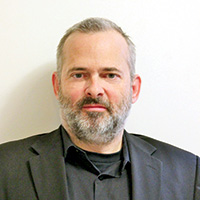In a recent report from U.S. News and World Report, the job of planning meetings, conventions and events is the top business job for 2012, and 16th best job overall.
Citing Bureau of Labor Statistics projections of 43.7 percent employment growth—or an uptick of 31,300 jobs—for planners between 2010 and 2020, U.S. News and World Report attributed the profession’s top-tier ranking in 2012 to factors including “favorable job prospects” and “strong job satisfaction scores.”
Meanwhile, a recent survey by PCMA showed a positive result in another aspect of planners’ careers: job satisfaction. Nearly 80 percent of the 418 planners surveyed by PCMA expressed satisfaction with their jobs. Still, U.S. News and World Report’s “favorable” employment outlook struck a raw nerve.
“I couldn't believe my eyes!” wrote one online respondent, claiming 10 years of professional planning experience. Unemployed for nearly a year, this planner’s experience is of “VERY FEW jobs out there nationwide and hundreds of applicants for each.”
Such pessimism is understandable for the one in 10 planners out of work. The rate of industry unemployment was 9.5 percent as of June 2012, compared to the national unemployment rate of 8.2 percent.
But resurgent group bookings alone are a promising sign of turnaround. All hope, it seems, is far from lost. As conversations with renowned search specialist Dawn Penfold and several meeting planners reveal, however, the post-recession environment is one of dramatically changed career options—including leaving the industry altogether.PageBreak
Reality Checks
After being laid off from her meeting planner job back in 1990, Dawn Penfold—with a decade’s experience in the field—established her now nationally acclaimed Meetingsjobs, the industry’s first job board and search firm for meeting professionals.
“In terms of the job market for planners, it’s been following fluctuations in the economy,” Penfold says. “Hiring levels for corporate and association planners are about level with this time last year, and while hotel sales are up, it’s the same people booking the events. In other words, new hiring appears stagnant.”
Penfold acknowledges that veteran planners unseated by the recession face the steepest climb.
“No matter the economy, it always gets harder the higher up you go,” she says. “Unlike past times when you stayed put until retirement, people were taken out of their jobs this time around—and there are significant hurdles to getting back in.”
On the one hand,” Penfold continues, “hiring managers are looking for exact matches to fill the vacant spots. It’s very niche-focused and industry-specific, and there’s no honeymoon period—they want new hires to come straight into the job.”
On the flip side, however, employers are anxious about making a bad hire, she notes.
“Will they fit the mold? Will they leave as soon as the economy recovers? Will they feel challenged? These and other concerns appear to be slowing the process,” Penfold says.
Tricky at any time, salary requirements and over-qualification are stumbling blocks too, along with intangibles like applications from unemployed workers coming from outside of the industry.
“There are people who think planning their wedding or child’s birthday party qualifies them for meeting planning,” Penfold opines. “Their resumes are yet another distraction for hiring managers.”
Again, though, the situation is hardly hopeless.
“Managing a career is about managing change, and with promising signs of an economic turnaround, this is a great opportunity to examine your career direction and ask yourself what you really want to do,” Penfold says.
Be creative, resourceful and energetic in your search—or be realistic, she advises.
“The post-recession landscape is markedly changed from before,” she warns. “Not all planners may be able to stay in the industry.”
Veteran planner June Schultz (see sidebar, "Moving On") is one such professional who moved into another role. For planners seeking to stay in the industry, hustle and creative solutions are the orders of the day.PageBreak
Rallying and Reinvention
After some 25 continuous years as a planner, including the last 15 as vice president of corporate events at a major financial institution in New York, Tim Forster was laid off in early 2012.
“The firm had apparently weathered the recession better than most,” Forster explains, “until we learned otherwise this year.”
After routinely organizing multiple events simultaneously, Forster’s experience runs the gamut, from client dinners to large-scale analyst conferences in Arizona and Florida. His enthusiasm for planning undiminished, Forster’s primary search focus—with some necessary flexibility—is on getting back into the financial industry.
“My energy I used to plan an event now goes to finding a new job,” he says. “That means diligently utilizing all available resources, from networking to seminars to video-taping mock interviews to enhancing my image and presentation.”
For almost 17 years, Jennifer Bodenweber worked as a planner at Merrill Lynch. After Bank of America acquired the firm in late 2008, her position was duplicated and she was let go in the spring of 2009. She has sought permanent employment in finance ever since, but her career strategy has included taking on independent planning projects.
“I had a great career at Merrill Lynch, and through my network of contacts and former colleagues, I have been able to secure a number of contract assignments,” she says. “With the market flooded and hiring slow, staying visible and keeping your name out there is imperative.”
Meanwhile, Bodenweber is taking a proactive approach to her job search.
“While taking creative steps such as matching keywords in my resume to specific job descriptions, I find less feedback in applying online, so whenever possible, I reach out to hiring managers directly,” she says.PageBreak
Flying Solo
For other planners, taking matters directly in hand has meant striking out on their own—guided in part by best job search practices.
Let go in 2011 after seven years managing conferences and special events for New York University’s School of Law, Meagan Sullivan took a managerial job in group sales for a Manhattan hotel. With her heart still in planning though, she actively sought new opportunities in the industry, only to hear repeatedly that she was over-qualified.
“So I decided to start my own boutique firm,” Sullivan says.
Through her Jersey City, N.J.-based Gilded Girl Events, Sullivan provides planning, design and consulting services for weddings, corporate and social functions. While her quality of life has improved considerably, “singing for her supper,” as she puts it, is not without its challenges.
“Operating in a saturated and competitive market like New York demands constant networking, business development, marketing and other efforts,” Sullivan says. “Like searching for a job, getting your name out there and separating yourself from the crowd are top priorities.”
Englewood, N.J.-based Samantha Bowerman did not wait for the recession to strike out on her own. With appointments including president of the Greater New York chapter of MPI (2000-2001) and president of the New York chapter of PCMA (2006), Bowerman—a certified meeting planner since 1996s—was formerly director of meetings and conferences for the American Institute of Certified Public Accountants. But the announcement of a relocation by AICPA prompted her to make a change of her own.
“In 2007, when the organization announced it was relocating to Durham, N.C., I acted upon my abiding interest in starting my own firm,” she says.
Her decision, not without risk, would prove life changing.
“I started Strategic Meetings Group from scratch, and to this day, I rely on networking and referrals,” Bowerman says. “When you go it alone, you are the brand—so personal relationships, past and present, are essential.”
After enduring an “abysmal” 2009, she is flourishing with a client mix that runs the gamut from associations to financial firms.
“About a year ago, Dawn Penfold called me with a job offer,” Bowerman says. “I confidently declined—I now create my own choices.”
Inspiring, too, is the successful independence that Blanca Diaz, with 17 years of diverse planning experience in the corporate, automotive, entertainment and other industries, has created for herself.
“In 2004, a global medical communications agency hired me to launch their meetings department,” explains Diaz, also in Englewood and president of MPI’s Greater New York chapter from 2004 to 2005. “After accomplishing that, it was time for a new challenge.”
Setting to the task with gusto, Diaz absorbed all she could on running a business through workshops and seminars. In late 2008, she launched her firm, BND Meetings, and quickly attracted a stream of former clients. She never looked back.
“You have to shine all the time,” Diaz says. “That means being vigilant and proactive about your career each and every day. By continually pushing yourself to improve and broadening your horizons, you create more chances for yourself—in good times and bad.”







